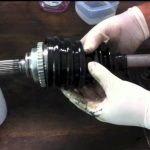
Volkswagen Jetta due to its compact and small size does not need too much force exacted to gain speed and as a result, has high fuel economy. However, the question is, what kind of gas does a Volkswagen Jetta take?
The gas a Volkswagen Jetta takes depends on the engine type, model options, etc. However, most Volkswagen Jetta cars are known to take Regular Gas with an 87-octane rating with the exception of the 2021 Volkswagen Jetta which takes premium gas.
Which Car Was a Volkswagen Jetta?
The Volkswagen Jetta is a small-sized car that has been on the market since the 80s. It was designed as an upgrade to the Volkswagen Golf.
Volkswagen Jetta is known for its sophisticated and sleek look coupled with its modern interiors; it is also known to be affordable.
Volkswagen Jetta is said to have superpowers to be its great fuel economy and comfort gotten when riding in it, not also forgetting the user-friendly infotainment center.
When most people consider buying a pre-owned car, they usually opt for the Volkswagen Jetta because of its reliability. It is also an all-time option for people looking for a family car.
Asides from its reliability, a Volkswagen Jetta can last 200,000 miles and between 7-10 years if it is well-maintained.
Does Volkswagen Jetta Need Premium Gas?
Volkswagen Jetta does not need premium gas, however, this depends on the year of production and model.
Premium gas is a type of gasoline with an octane level higher than 89, but the most common octane level for premium gas is 91 and 93. The minimum requirement for premium gas in some states is 90 while others may put theirs as 92.
Premium gas contains additives of high quality and also has the ability to stabilize against spontaneous combustion.
Many of the Volkswagen models are not designed to run on premium gas, however, an exception is made with the 2020 Volkswagen Jetta and 2021 Volkswagen Tiguan.
These two models of Volkswagen require premium gas to function properly because it has turbocharged engines.
A turbocharged engine uses forced induction and turbine power to increase compressed air inside the engine’s combustion chamber.
Therefore, because of the presence of turbocharged engines in this model, there is a need to use fuel with higher octane levels (premium gas).
The use of premium gas in some Volkswagen Jetta helps to prevent the engine from knocking and also increases fuel efficiency with improved performance.
What Kind of Gas Does a Volkswagen Jetta Take?
As reiterated earlier, the kind of gas a Volkswagen Jetta will take largely depends on its engine type, the engine types vary from gasoline to diesel and the hybrid engine.
VW Jetta which has a gasoline engine and are produced from the year 2010 is designed to use regular gas or unleaded regular gas usually with an 87-octane rating.
Although the gasoline engine Jetta is designed to use regular gas, you can also use premium gas if you want.
For Volkswagen Jetta with diesel engines produced from the year 2010, you can use Number 2 Ultra Low Sulfur Climatized diesel fuel. In situations where extended arctic conditions exist, you can use Number 1 Ultra Sulfur Climatized diesel fuel.
Now for Volkswagen Jetta with a hybrid engine produced the year 2010, it is required that high-quality regular gas be used, regular gas with an 87-90 octane rating.
Just like the Volkswagen Jetta with a gasoline engine, you can also use premium gas in the hybrid engine but it will be a waste of money to do so.
Apart from the gas requirement according to the engine type, there are also gas requirements by model and year of production.
The Volkswagen Jetta 2020, Volkswagen Tiguan 2021, and the Jetta GLI are the only ones required to use premium gas by recommendation.
Using fuel with a lower octane rating in them will result in underperformance and may also cause the engine to knock.
The majority of the Volkswagen Jetta takes unleaded regular gas, however, if you are concerned about the performance and want to improve the engine’s performance, there is no harm in using premium gas.
What is the Gas Tank Size of the Volkswagen Jetta?
The Volkswagen Jetta is available in various models, with different trim levels and model options, therefore, the size of the gas tank will also vary. There is no one-size-fits-all when it comes to a vehicle’s gas tank.
However, across all models of the Volkswagen Jetta, the sizes of the gas tank range from 11.8 gallons to 14.5 gallons.
For more clarity and understanding, let’s take a look at some model years and the varying gas tank size.
- 1990 – 1991 model uses a diesel engine, the size of the fuel tank is said to be 12.1 gallons and it is capable of taking 55 liters of fuel.
- 1993 – 1995 model has the capacity to take 12.1 gallons and 55 liters in its gas engine.
- 1996, 1998, and 1999 model uses a diesel engine, with a 12.1 gallons capacity
- 2001 – 2003, and 2005 model also has the capacity to take 55 liter and 12.1 gallons in their diesel engine
- 2006 – 2010 model has a gas engine with the capacity to fully take 55 liters of fuel and 12.1 gallons
- The 2015 – 2016 model has a hybrid engine type with a full fuel capacity of 46litres and 9.9 gallons
- The 2019 – 2020 model uses a gas engine and can take 11 gallons of gasoline and 50litres
- The 2021 model uses a gas engine type with the capacity to take 11.2 gallons of gasoline and 52 liters.
- The 2022 Volkswagen Jetta gas tank is able to take 13.2 gallons of gas.
Have in mind that the gas tank size also depends on the state, the measurement in the UK is different from that of the US.
How Many Miles Can You Run with a Volkswagen Jetta Full Tank?
The miles a Volkswagen Jetta will run on a full tank is solely dependent on the size of the gas tank and if there’s no problem with any part of the engine. It also depends on whether you are going on city driving or highway driving.
If you are going on city driving, a full-tank Volkswagen Jetta can run between 316 miles to 435 miles while it can run between 475 miles to 667 miles when driving on the highway.
Although city driving is said to be more complex than highway driving, city driving doesn’t require the vehicle to use more fuel.
The effective functioning of some major parts of an engine may affect the miles a Volkswagen Jetta will run on a full tank. For instance, if there is a problem with the fuel injector the fuel mileage will be affected.
Conclusion
It is possible to get confused as to what type of gas your Volkswagen Jetta should use, you can always check your owner’s manual if you have it. If you do not have it, your auto mechanic is also in the best position to recommend a suitable gas for your Jetta.









